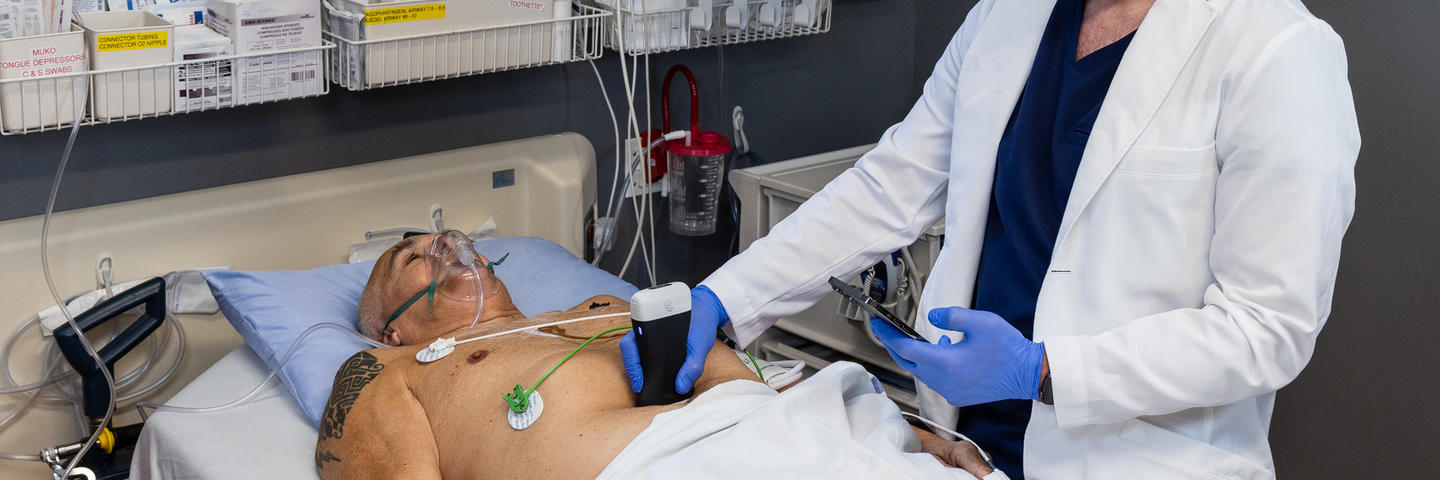Innovative technology developed and distributed by PHC-lead team empowers rural physicians
With handheld ultrasounds, physicians can scan multiple parts of the body with one device, instead of having to go through a longer process of scanning a particular area with traditional imaging.
Innovation Research | Christine Lyon

Ultrasounds are key clinical tools used to diagnose many conditions, but access to traditional ultrasound scans is limited by machine availability and the ability analyze the results. Patients, particularly those in in rural or remote communities, can face long wait times or need to travel long distances to access these scans.
Providence Health Care is a member of DIGITAL, formerly Canada’s Digital Technology Supercluster, which aims to fast track Canadian digital technologies than improve health and wellbeing, protect our environment, and drive economic productivity. In collaboration with PHC Ventures, Change Healthcare, Clarius Mobile Health, the University of British Columbia and the Rural Coordination Centre of BC, with support from St. Paul’s Foundation, DIGITAL’s Intelligent Network for Point-of-Care Ultrasound (IN-PoCUS) project developed, distributed and studied the impact of handheld ultrasounds.
These devices combine machine learning and a cloud-based platform to create a point-of-care ultrasound network to deliver faster, more accurate diagnoses and empower clinicians to make more informed decisions. By being able to distinguish between smaller issues and emergencies, this technology can help streamline care and potentially save lives.